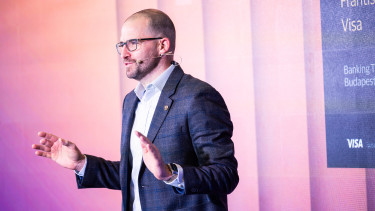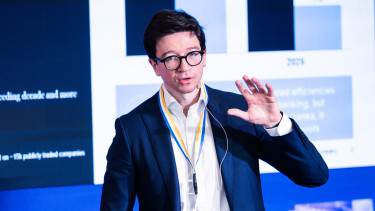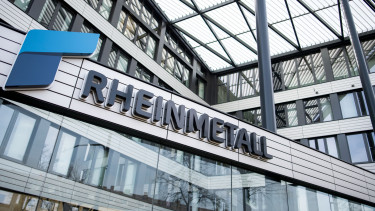While Revolut is building a new highway, banks are renovating a million-dollar highway

What is the main task of banking IT today?
According to Balázs Vinnai (MBH Bank), increasing efficiency, which became a key issue after the 2008 crisis, remains important, but it is now complemented by efforts to improve competitiveness. In his opinion, speed is also a key factor in this. András Kaliszky (Erste Bank) said that the primary goal of Erste Bank is to carry out processes with minimal human resources and reduce human-related costs, while also improving the customer experience.
According to József Nyíri (Finshape), increasing efficiency and reducing costs remain important goals, but achieving them requires investment. Bank IT budgets are growing, and AI is giving new meaning and quality to digitisation budgets. According to Gergely Lóska (K&H), customers want simple, fast, and easy processes, and this must be kept in mind as a priority.
Currently, we view AI as Liverpool's Dominik Szoboszlai — as if it were suitable for every function. However, we now need to move towards more focused use.
Zoltán Kaszás (OTP Bank) says that competitiveness is the key to everything. He pointed out that
planned IT budgets are often unspent,
suggesting that a lack of knowledge rather than a lack of money is often the problem. They are looking for partners rather than simple suppliers because joint thinking is the only way to keep up with the speed of change. A few years ago, OTP started developing its own language model. Looking back, however, it is clear that the greatest achievement of the project is not the model itself, but the knowledge acquired in the meantime (e.g. what to buy and what to build).
'AI will bring about at least as much change to the banking sector as the introduction of electricity,' said Jamie Dimon, CEO of JP Morgan, as quoted by Péter Jendrolovics of Gránit Bank.
"While we do not know the full effect or the precise rate at which AI will change our business — or how it will affect society at large — we are completely convinced the consequences will be extraordinary and possibly as transformational as some of the major technological inventions of the past several hundred years: Think the printing press, the steam engine, electricity, computing and the Internet, among others," Dimon said in his 8 April 2024 annual letter to shareholders.
Gránit Bank is already using AI agents for customer service and processing loan documents. Fifty percent of customers ask Gránit Guru, while only 50% ask employees. This year, however, the bank launched a document processing agent for mortgage lending, which checks submitted documents alongside and instead of the lending staff. With the help of this agent, the bank can significantly reduce the time spent on document processing by about 70%.
Keeping the pace with fintech, cultural adaptation at banks
While the business side often moves forward based on use cases, IT fundamentals must also be taken into account. In this regard, Erste Bank has found a reasonable compromise. Although their initial AI results can still be considered pilot projects, we are actually talking about a long-term endeavour, said András Kaliszky.
According to Zoltán Kaszás, AI plays a major role in personalisation, efficiency improvements and operational changes. Gergely Lóska said that K&H introduced its digital AI assistant, Kate, three years ago. Kate has already saved her colleagues 10,000–15,000 working hours, and she can now handle more than 360 use cases with over 70% autonomy.
According to József Nyíri, both colleagues and systems must be enabled to use AI. He also predicts that AI will shift towards personal assistants rather than centralised ones, which are currently offered by few companies.



While the banking sector has made great strides in customer service and digital experience, fintech companies are still way ahead in terms of digital operations and mindset. 'For Revolut, the most important thing is to be the number one card in people's wallets,' said Balázs Vinnai. 'For banks, this is much less of a performance indicator.' According to the expert, what is happening at MBH Bank is a simultaneous cultural, leadership and technological transformation, which requires a significant convergence of business and technology.
Revolut is building a highway that no one is using yet, while banks are renovating a highway that a million people travel on every day,
he added. In his opinion, banks are still lagging far behind when it comes to personalisation capabilities.
According to András Kaliszky, there is a significant cultural divide between banks and fintech companies that is challenging to overcome.
The democratisation of IT is also important for banks, as it will allow those responsible for business results to consider promising technological solutions.
Zoltán Kaszás pointed out that bigtechs, as well as fintechs, pose a threat to banks' business. The expert said that effective and expensive tools must be used efficiently and well; otherwise, they will only cost money. This is why IT skills need to be democratised to a significant extent.



Gergely Lóska said that we should not fear fintech companies, but rather be grateful to them because they have generated competition that benefits everyone. He pointed out that, unlike fintech companies, banks offer comprehensive solutions. He believes that it is not only necessary to train IT professionals in business, but also to strengthen the business skills of IT specialists.
According to Péter Jendrolovics, banks are competing for customers whose expectations are constantly changing and who are becoming increasingly disloyal. One response to this is the recently introduced single-use virtual card, which has already been digitised tens of thousands of times.
According to József Nyíri, we need to ask ourselves what types of professionals will be required over the next ten years. While everyone wants to be an AI engineer, at Finshape they are looking for analysts and technical experts who excel at prompt engineering. In this case,
it is hard to say whether we are talking about business or technology, as the two are closely intertwined.



One of the final lessons from the panel discussion, particularly with regard to AI, was that
banks are no longer interested in demos; they want partners who can implement commercially promising ideas.
Cover photo: Portfolio











